Thousands of researchers, physician-scientists, patient advocates, and others in the cancer community will gather to discuss the latest breakthroughs, share ideas, and forge new collaborations to accelerate progress in cancer science and medicine.
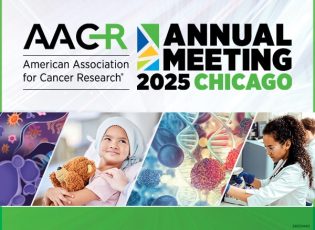
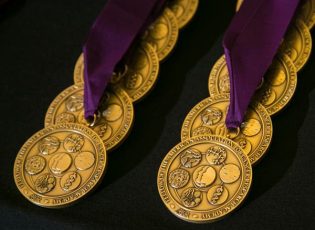
Pioneering researchers and physician-scientists elected to the AACR Academy to celebrate their accomplishments and support the acceleration of progress against cancer.
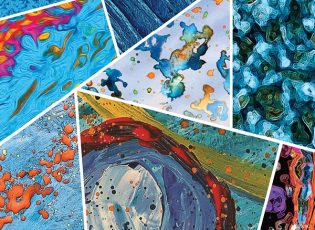
The AACR’s immuno-oncology meeting in Los Angeles, February 23-26, 2025, brings together the leading experts in immunotherapy to accelerate progress in cancer science and medicine.
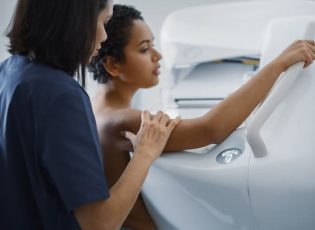
Preventing cancer and identifying malignancies at the earliest, most treatable stages are key areas of focus for the American Association for Cancer Research (AACR) and its members.
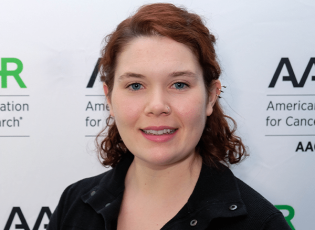
Valerie O’Brien, PhD, is using her microbiology expertise to model and study gastric cancer development with early support from a Debbie’s Dream Foundation-AACR grant.
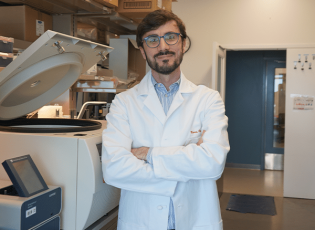
Using funding from the AACR, early-career investigator Marco Ruella, MD, of the University of Pennsylvania found a way to improve immunotherapy for B-cell acute lymphoblastic leukemia.
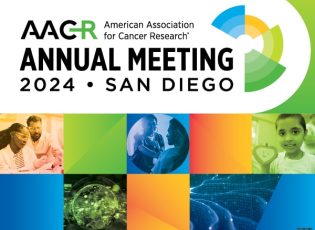
A global conference in San Diego brings together thousands of cancer researchers, physician-scientists, patient advocates, policymakers, and others to accelerate progress against cancer.

Pioneering researchers and physician-scientists elected as Fellows of the AACR Academy in 2024.
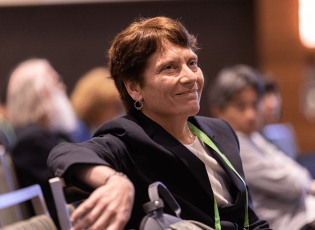
Pioneering chemist and Fellow of the AACR Academy Carolyn R. Bertozzi, PhD, leads efforts to develop cancer therapeutics against “a different type of drug target.”
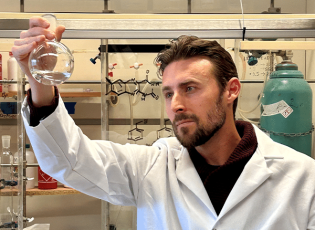
AACR grantee Raymond E. Moellering, PhD, of the University of Chicago, uses chemistry to build “molecules that can go after undruggable protein targets” to treat cancers.
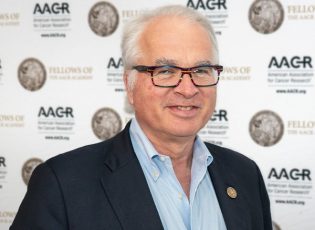
After Dr. Stephen Chanock’s brother and best friend, Foster, was diagnosed with a rare type of cancer, he dedicated his life to solving the problems of cancer.
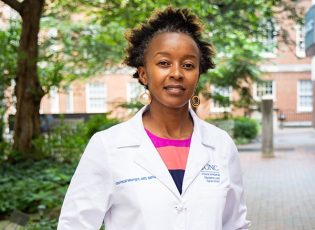
Dr. Chemtai Mungo is researching an innovative self-treatment strategy for cervical precancer could save lives of women in underserved areas.
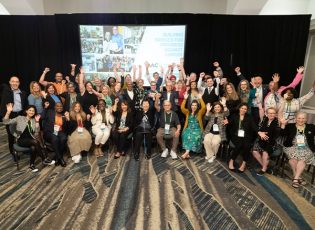
Survivors and advocates learn from the scientists, and vice versa, in a long-running program that builds enduring partnerships.
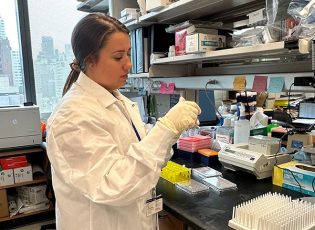
Small donations to the American Association for Cancer Research add up to big support for promising new research on a rare type of cancer that strikes teenagers and young adults.
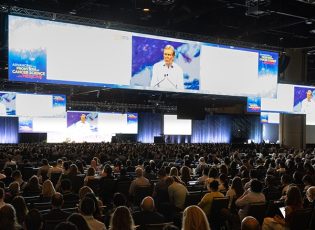
Researchers discuss recent progress in targeting a so-called “undruggable” protein at American Association for Cancer Research meetings.
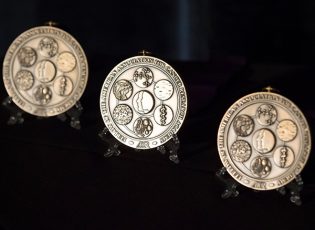
Twenty-three distinguished scientists whose major innovations have propelled progress against cancer were elected as Fellows of the AACR Academy.
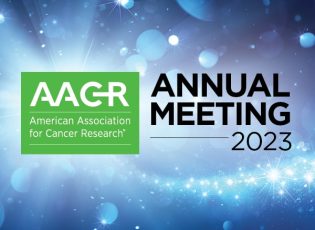
Dr. Robert H. Vonderheide, Program Chair of the AACR Annual Meeting 2023, gives an overview of the meeting which brings together thousands of experts from across the continuum of cancer research.
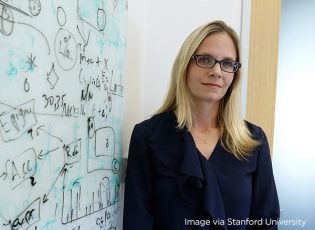
Tumors are “born to be bad” with metastatic potential present from the start, spreading to other organs when the original malignancy is the size of a poppy seed, she says.
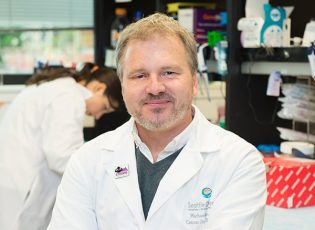
An AACR fellowship helped a young pediatrician become a physician-scientist, using clinical insights to inform the search for new cancer therapeutics in the laboratory.
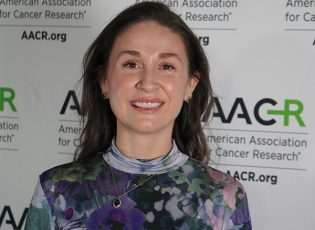
A career development grant from the American Association for Cancer Research (AACR) helped Yale cancer scientist Luisa Escobar-Hoyos, MSC, PhD, earn two major, multi-year federal grants to further develop her research.
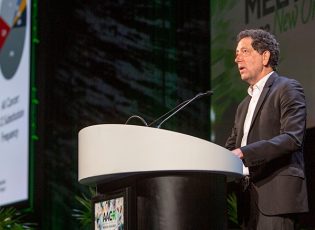
Kevan M. Shokat, PhD, shifted the paradigm of targeted cancer therapy by drugging an “undruggable” protein and paving the way for future advances.
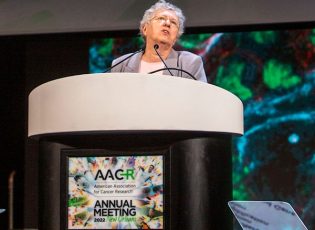
Both of Dr. Patricia LoRusso’s parents died of cancer when she was a teenager, inspiring her to become an oncologist and focus on developing new treatments for people with cancer.
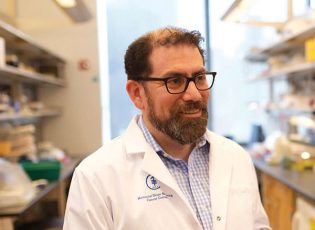
“It worked better than our wildest dreams,” Dr. Diaz said of a therapeutic approach that uses a tumor biomarker to identify patients likely to respond to immunotherapy.
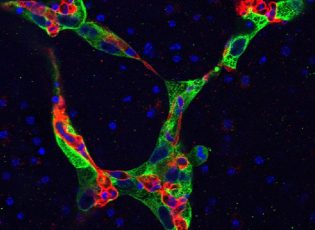
Ashani Weeraratna, PhD, and Ekrem Emrah Er, PhD, explain how a tumor’s surroundings direct its growth and progression, and research presented at the AACR Annual Meeting 2022 shows how scientists can manipulate those surroundings to treat cancer.

Pioneering cancer researchers and physician-scientists elected to the AACR Academy.
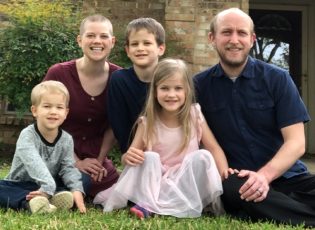
For Rachel Orth and her family, the devastation of a diagnosis of metastatic stomach cancer was compounded by the COVID-19 pandemic.
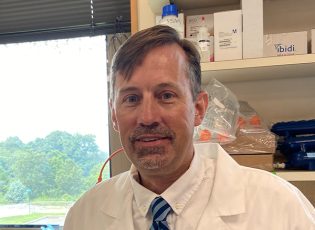
A career development grant from the AACR fuelled the research of David A. Tuveson, MD, PhD, FAACR, to initiate the development of a model to help understand one of the deadliest and most difficult-to-treat types of cancer.
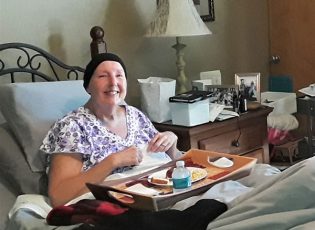
For Margaret McGill, palliative care was key to her cancer care, enabling her to regain her quality of life and reach her goal of undergoing a bone marrow transplant.
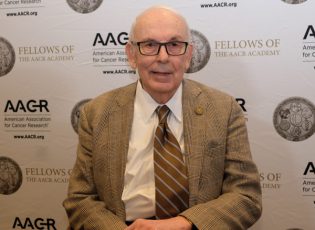
An early collaboration between AACR Fellows Joseph F. Fraumeni, MD, and Frederick P. Li, MD, defined one of the first cancer predisposition syndromes linked to the most commonly mutated gene across all cancer types.
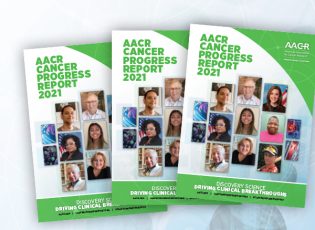
The American Association for Cancer Research’s annual AACR Cancer Progress Report chronicles a year of advances in cancer science and highlights the enormous strides in cancer research and treatment since the signing of the National Cancer Act of 1971.
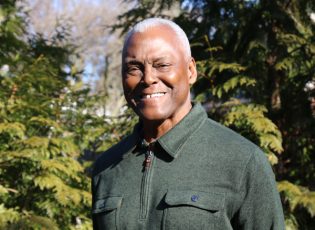
After his 2011 diagnosis with prostate cancer, U.S. Army Col. (ret.) Gary Steele learned about cancer health disparities and the importance of participating in cancer clinical trials.
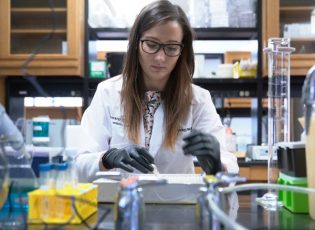
An early-career investigator uses GENIE data to examine genomic differences in early-onset colorectal cancer among different racial groups.
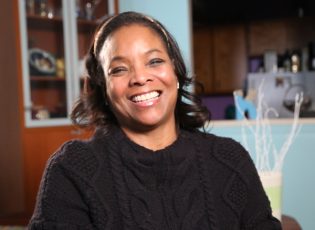
Triple-negative breast cancer survivor Karen Peterson shares a journey of empowerment, survival, and giving back to encourage people of color to participate in cancer clinical trials.
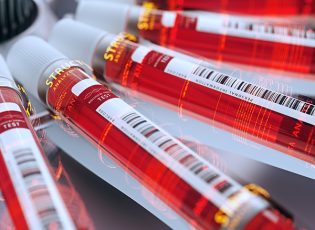
Research presented at the AACR Annual Meeting 2021 highlighted the great potential of liquid biopsy to benefit patients across the continuum of cancer care.
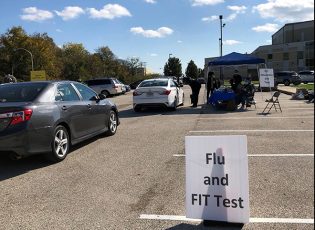
Researchers say the pandemic poses an additional burden on communities of color that already experience cancer health disparities. But a community-based effort at a Philadelphia church is using an innovative approach to address the problem.

The American Association for Cancer Research elected 25 renowned scientists from around the world to the AACR Academy Class of 2021. The AACR Academy recognizes the groundbreaking contributions of pioneering cancer researchers and physician-scientists whose innovations have propelled significant progress against the collection of devastating diseases we call cancer.

AACR President (2020-2021) Antoni Ribas, MD, PhD, FAACR, discusses the AACR Annual Meeting 2021, which brings together the greatest minds in cancer science to drive progress against cancer.

To mark the 10th anniversary of the AACR journal Cancer Discovery, Cancer Research Catalyst and AACR Stories spoke with Editors-in-Chief Lewis Cantley, PhD, FAACR, and Luis Diaz, MD, about the journal’s origins, accomplishments, and future.



